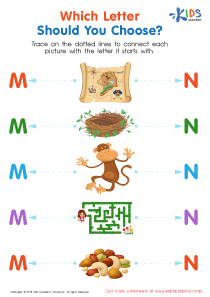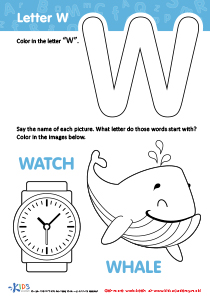Fine Motor Skills Normal Kindergarten Upper & Lowercase Letters Worksheets
21 filtered results
-
From - To
Enhance your child's fine motor skills with our engaging Kindergarten Upper and Lowercase Letters Worksheets! Designed specifically for young learners, these worksheets help children refine their handwriting, control, and coordination. Each activity encourages kids to trace, connect, and color letters, making learning the alphabet interactive and fun. Perfect for at-home practice or classroom activities, these resources support early literacy development while strengthening hand-eye coordination and dexterity. Easily printable and aligned with educational standards, our worksheets offer a comprehensive approach to mastering uppercase and lowercase letters. Unlock your child's potential today with our thoughtfully designed fine motor skills worksheets!
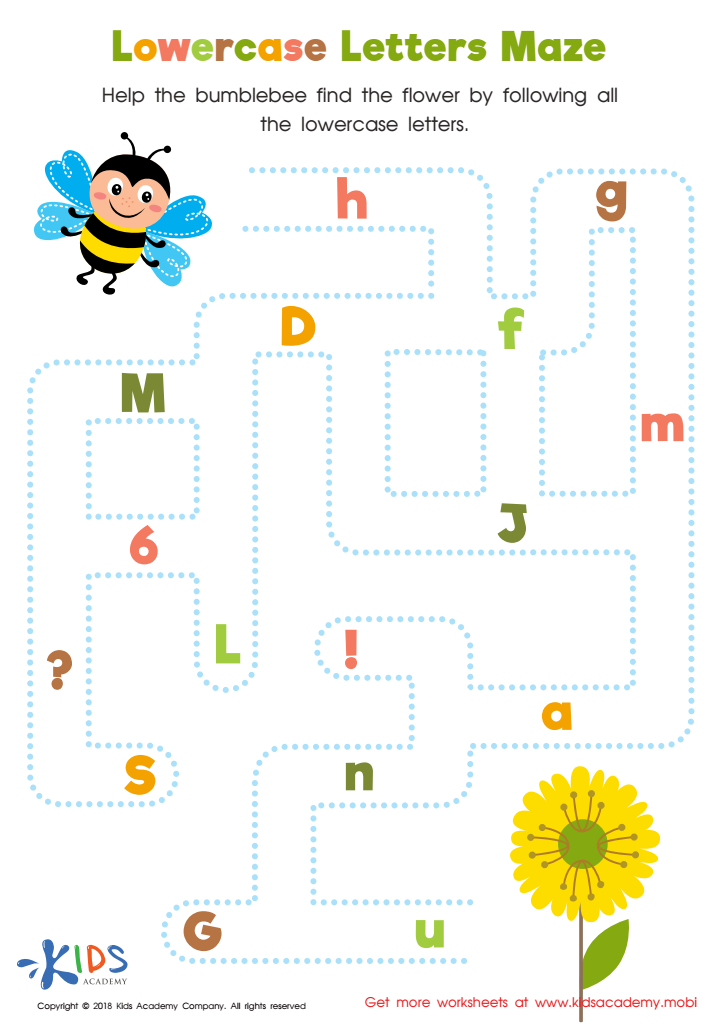

Lowercase Letters Maze Worksheet
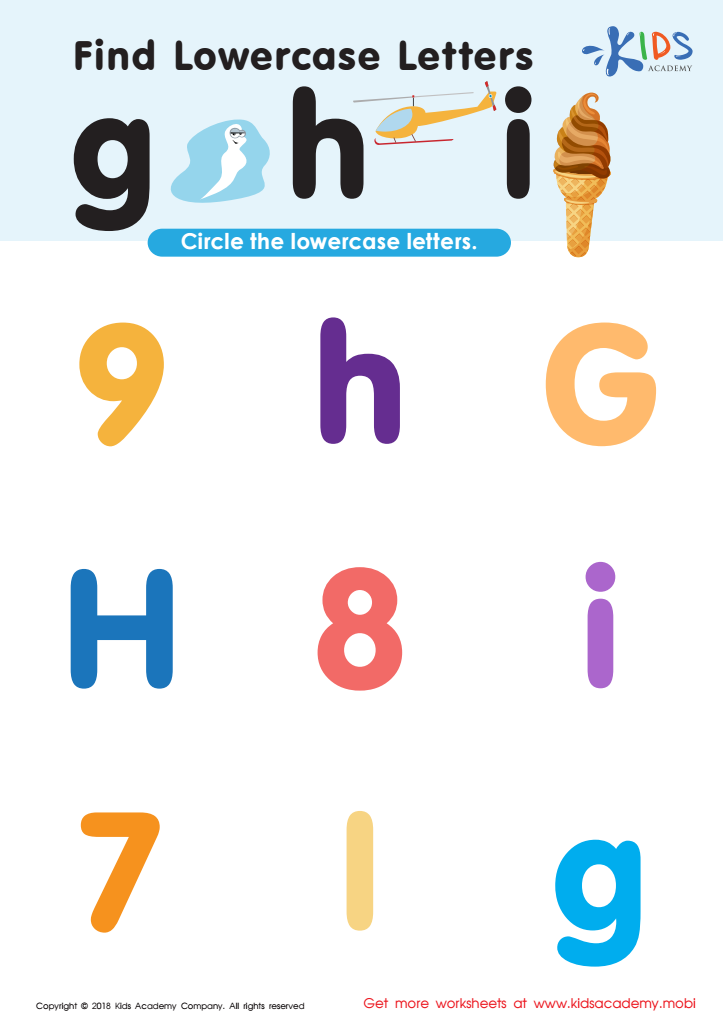

Find Lowercase Letters g h i Worksheet
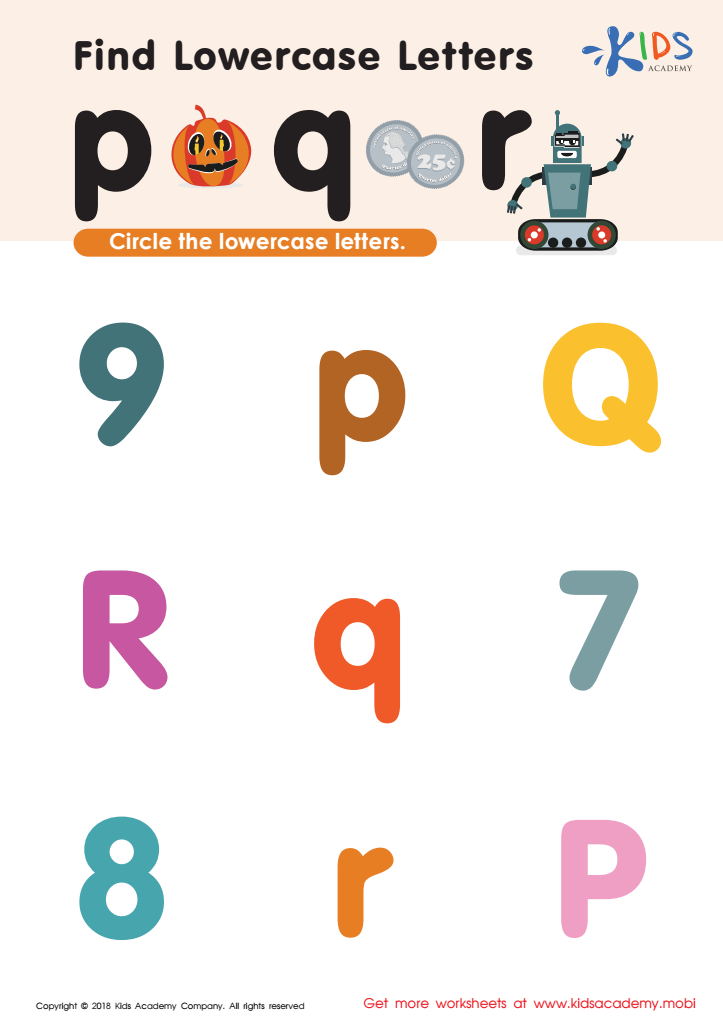

Find lowercase Letters p q r Worksheet
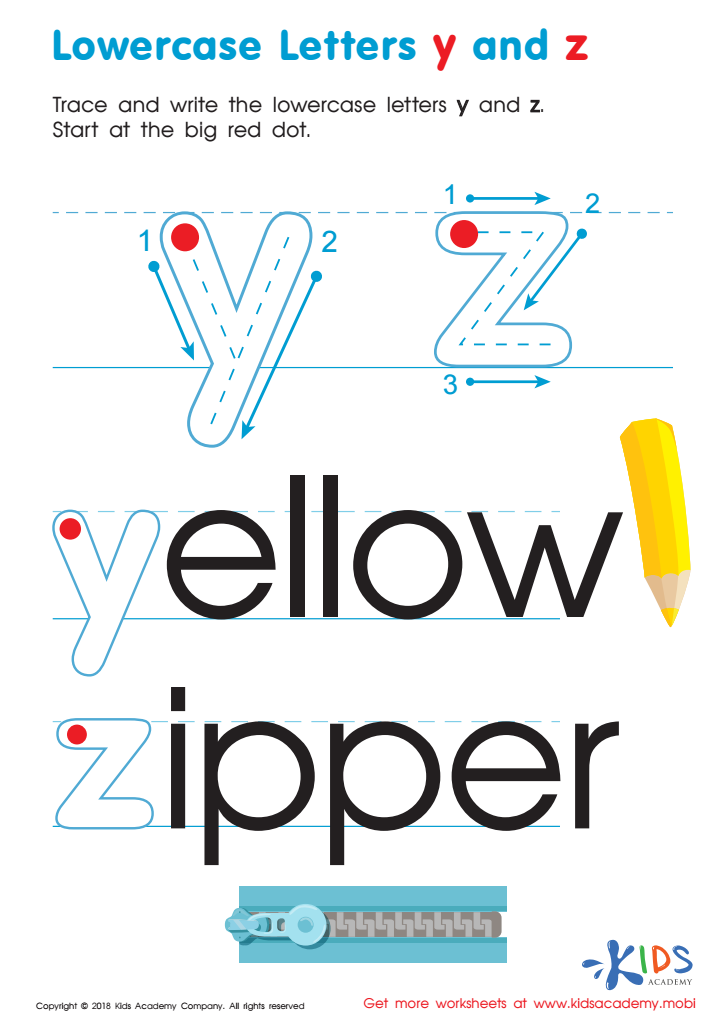

Lowercase Letters y z Worksheet
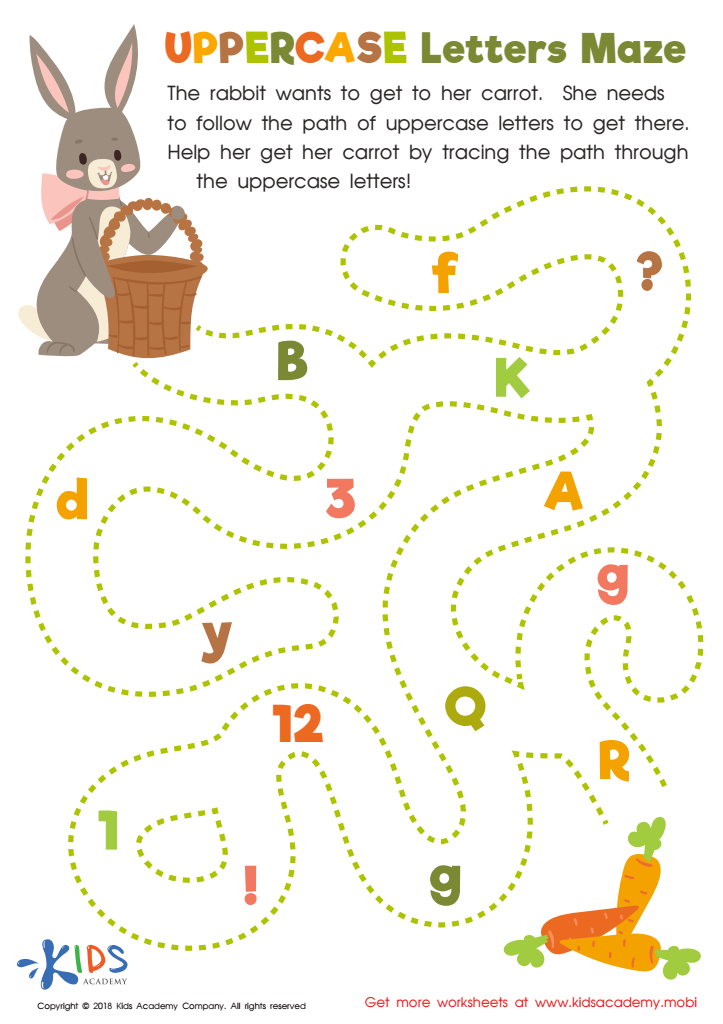

Uppercase Letters Maze Worksheet
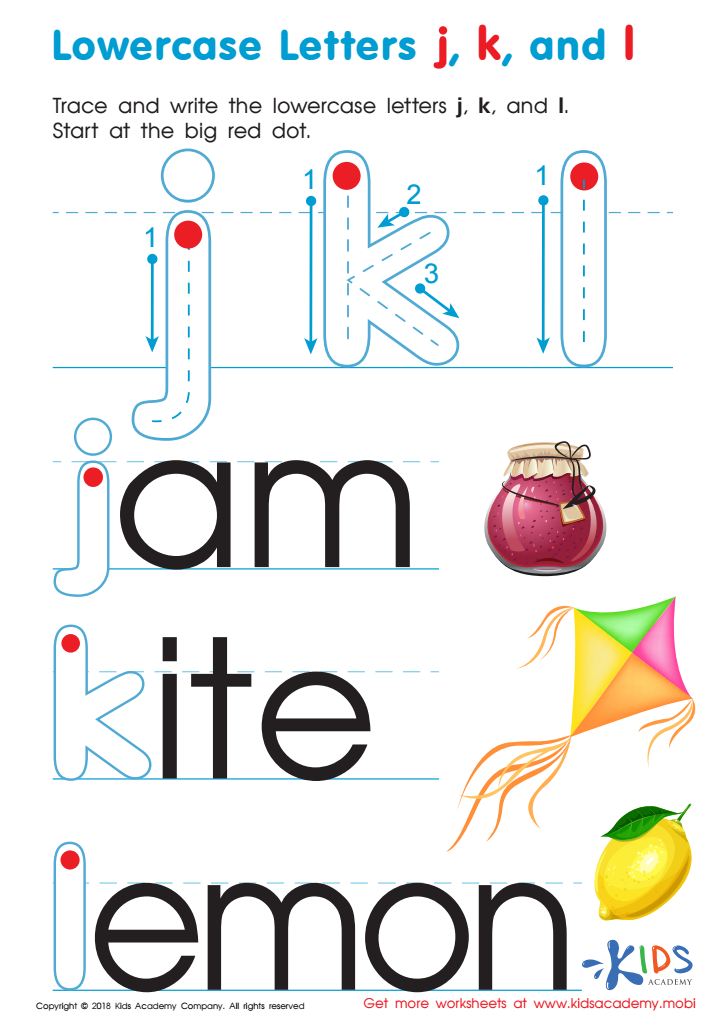

Lowercase Letters j k l Worksheet
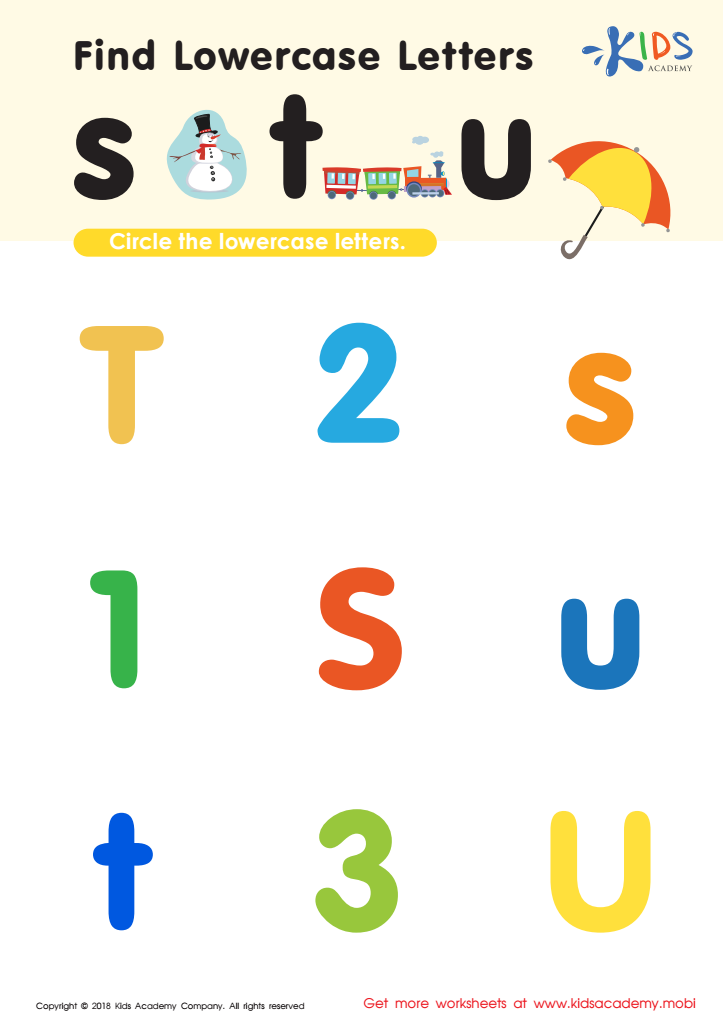

Find lowercase Letters s t u Worksheet
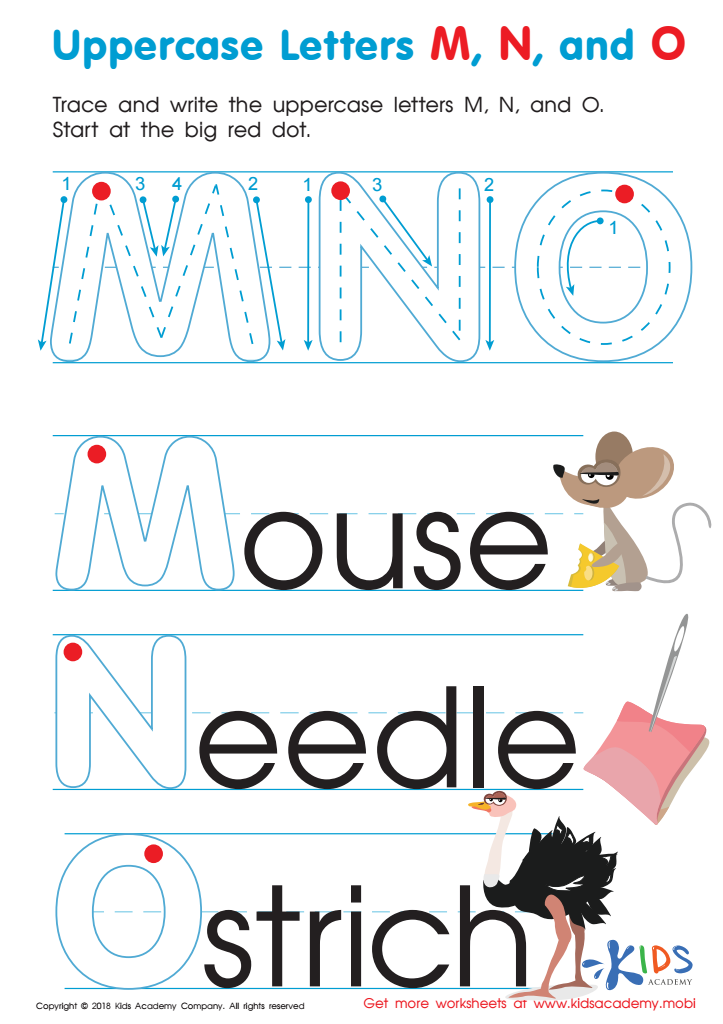

Uppercase Letters M, N, and O Worksheet
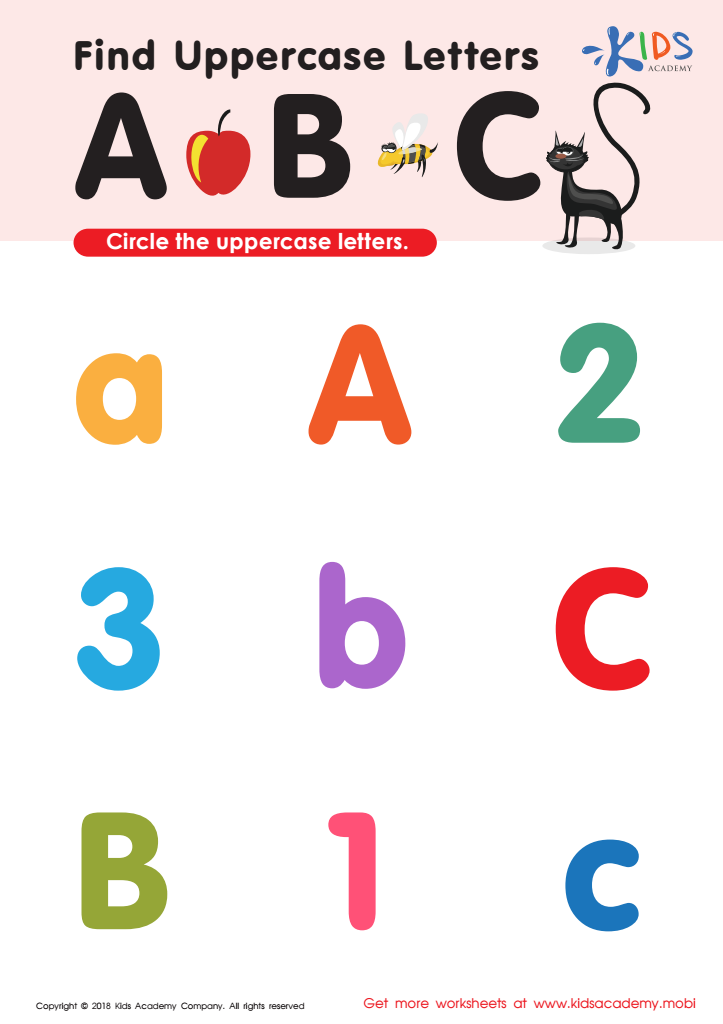

Find Uppercase Letters A, B, and C Worksheet
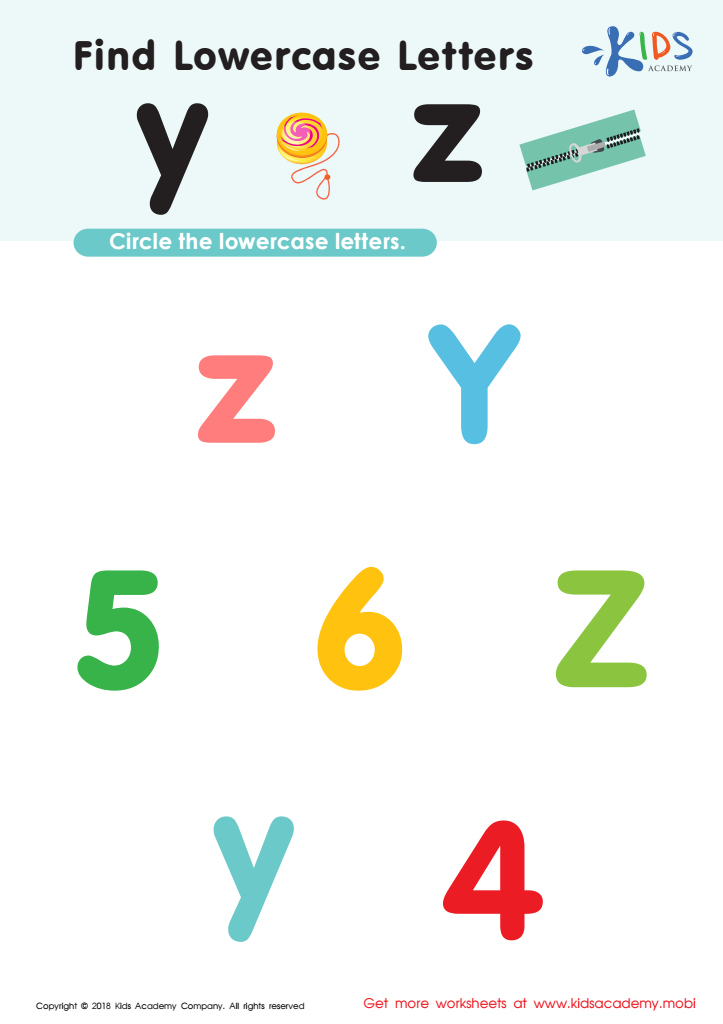

Find Lowercase Letters y z Worksheet
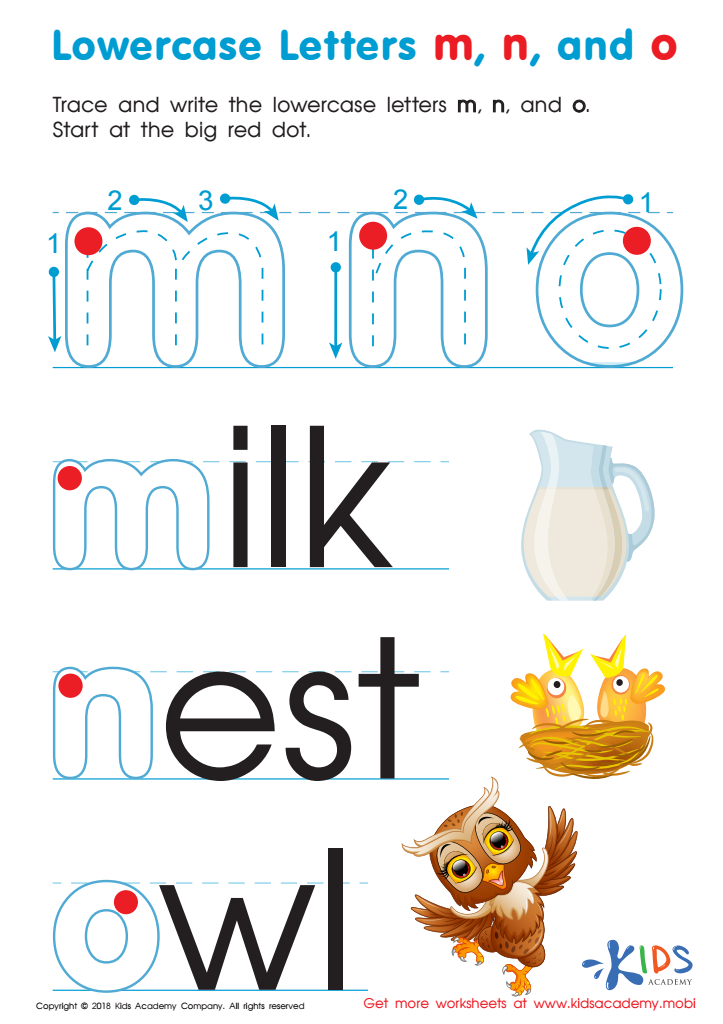

Lowercase Letters m n o Worksheet
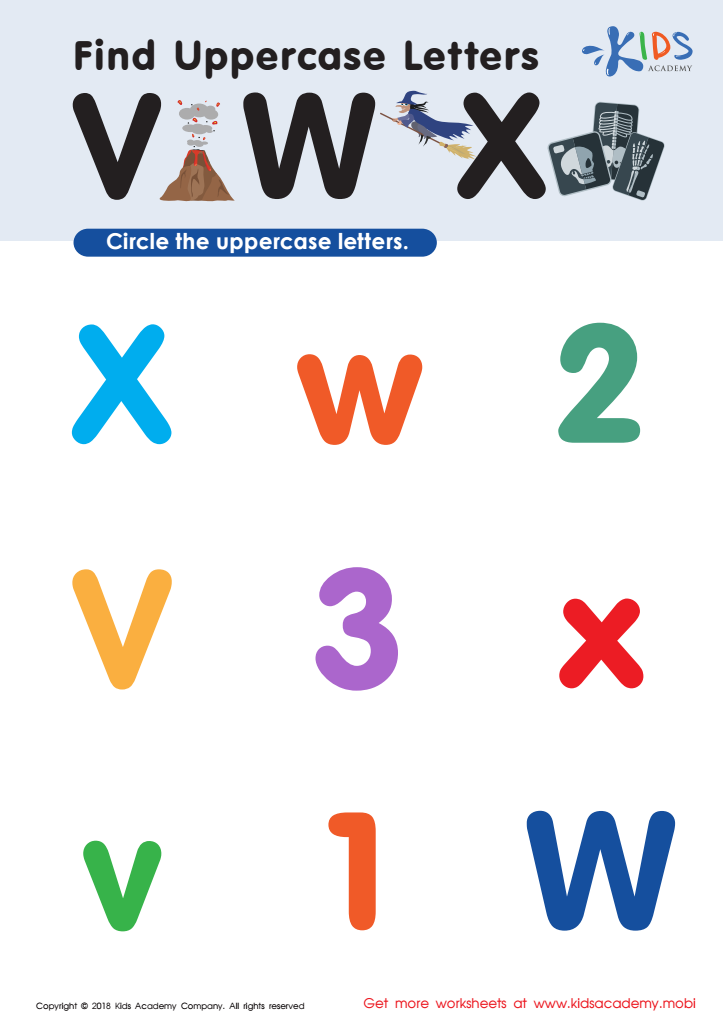

Find Uppercase Letters V, W, X Worksheet
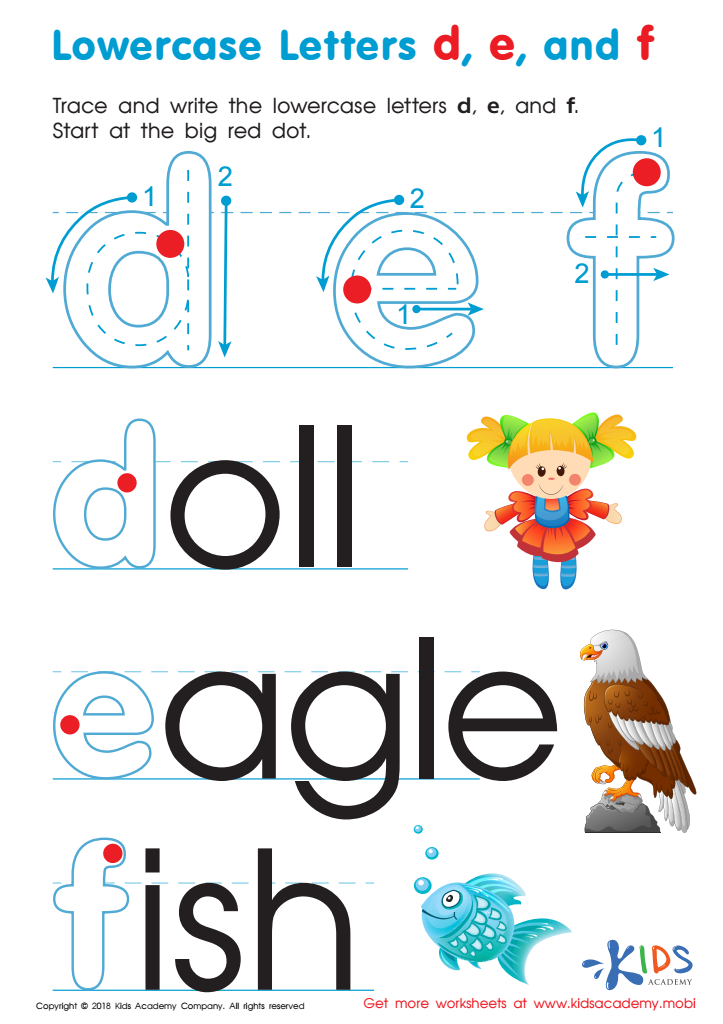

Lowercase Letters d e f Worksheet
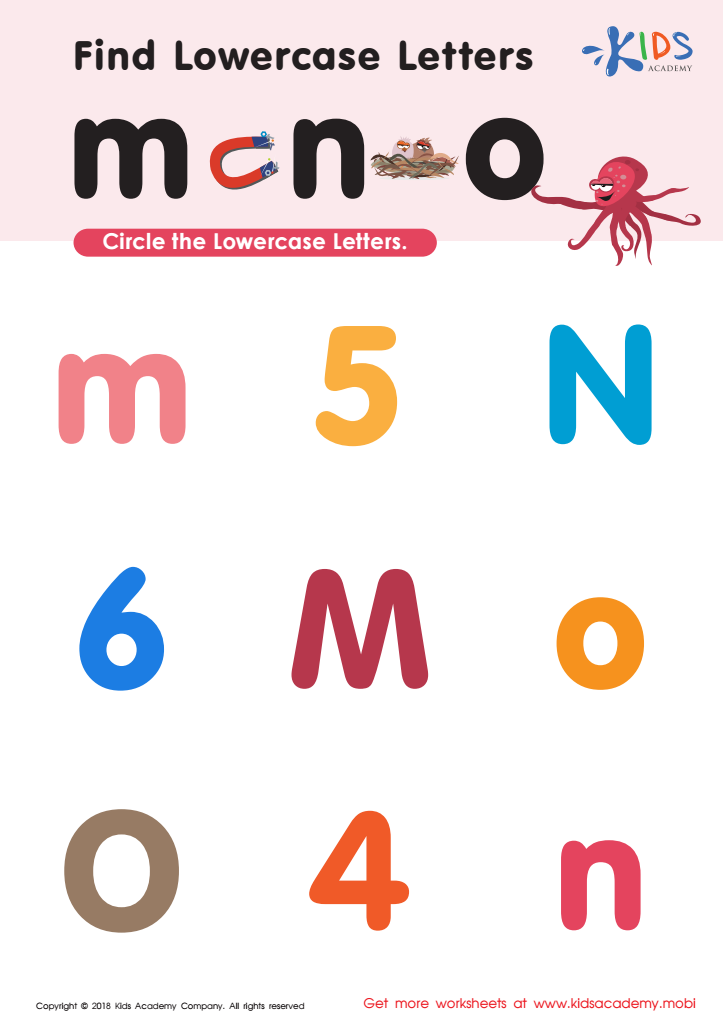

Find Lowercase Letters m n o Worksheet
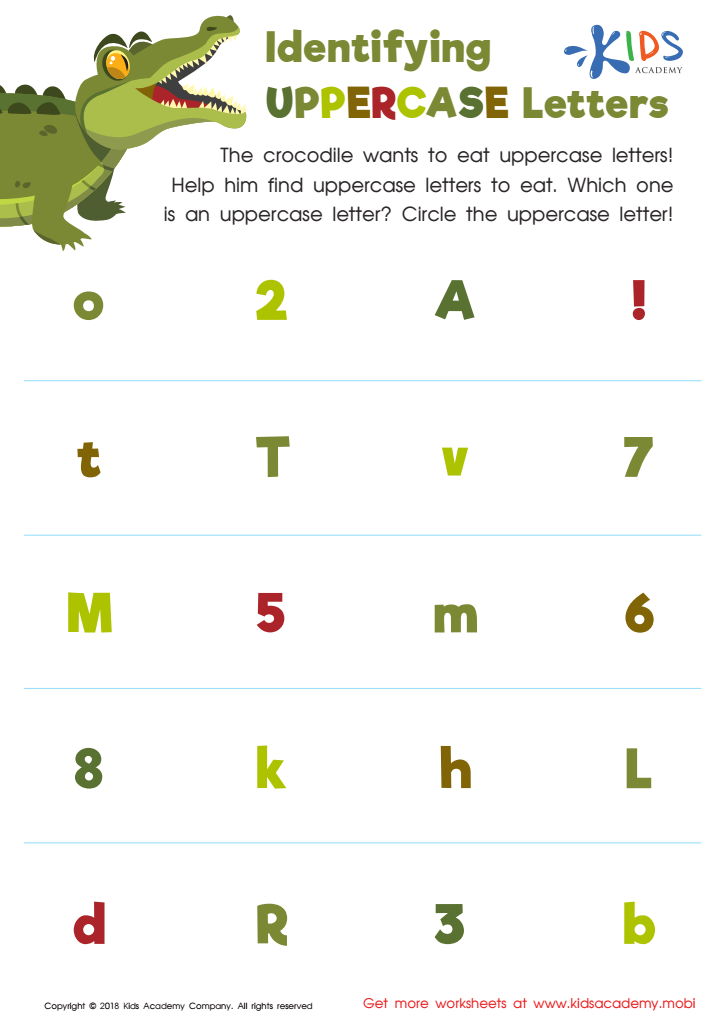

Identifying Uppercase Letters Worksheet
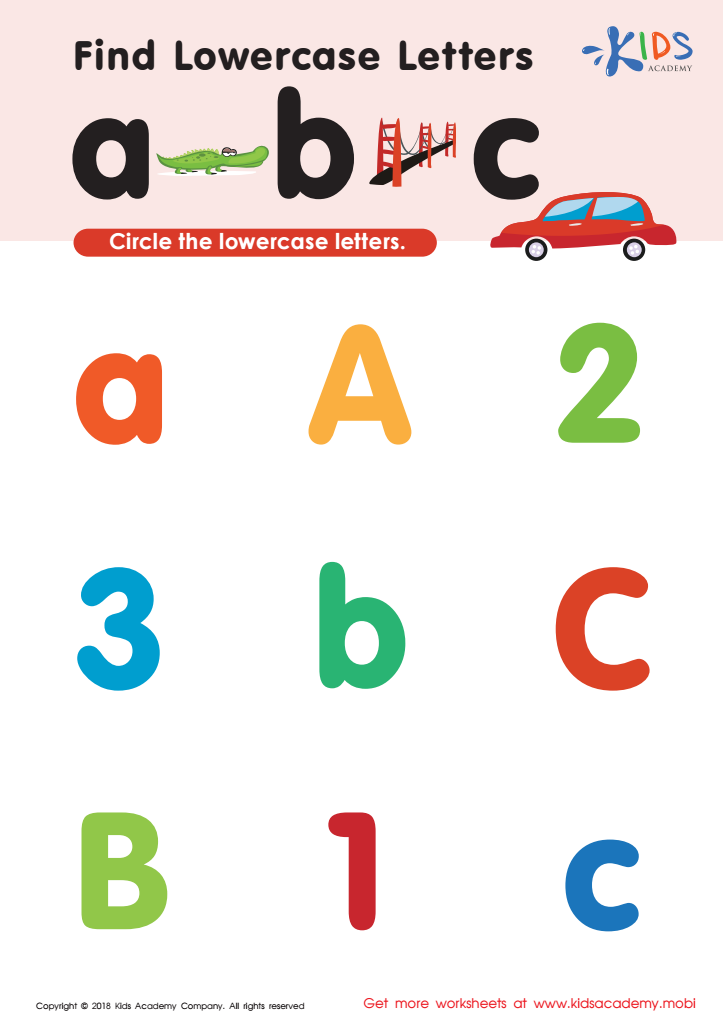

Find lowercase letters a b c Worksheet
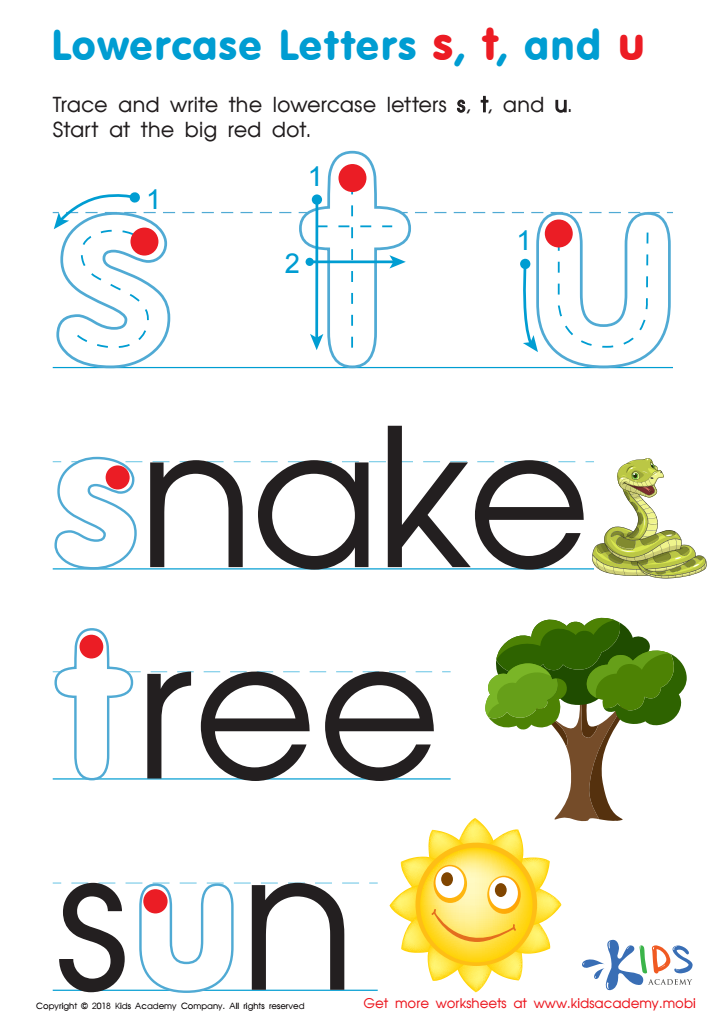

Lowercase Letters s t u Worksheet
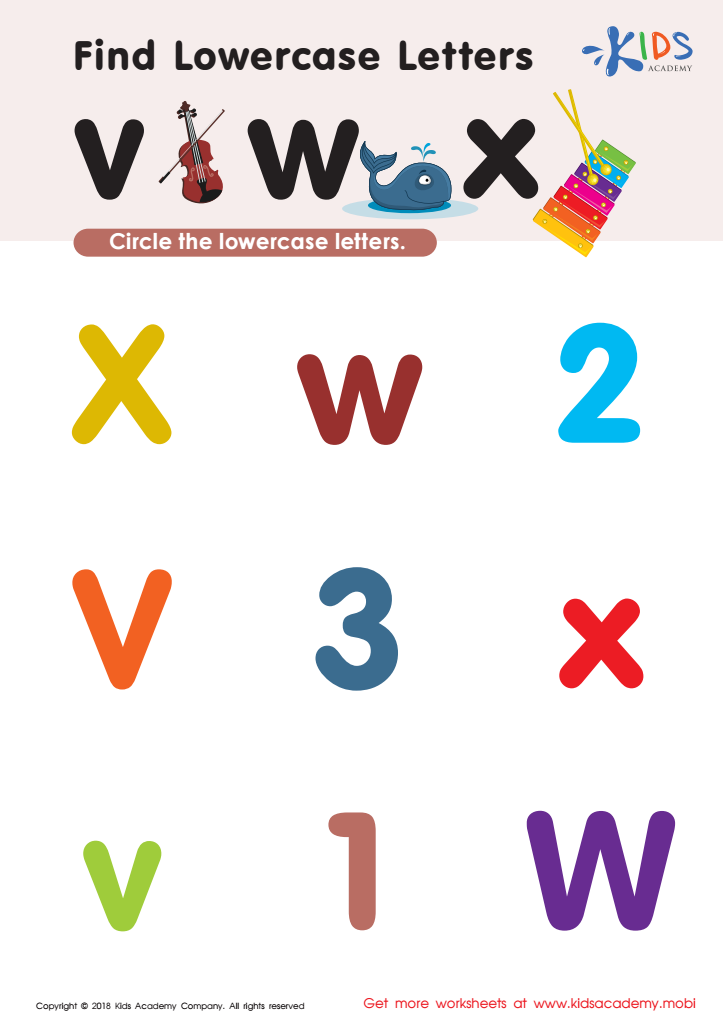

Find Lowercase Letters v w x Worksheet
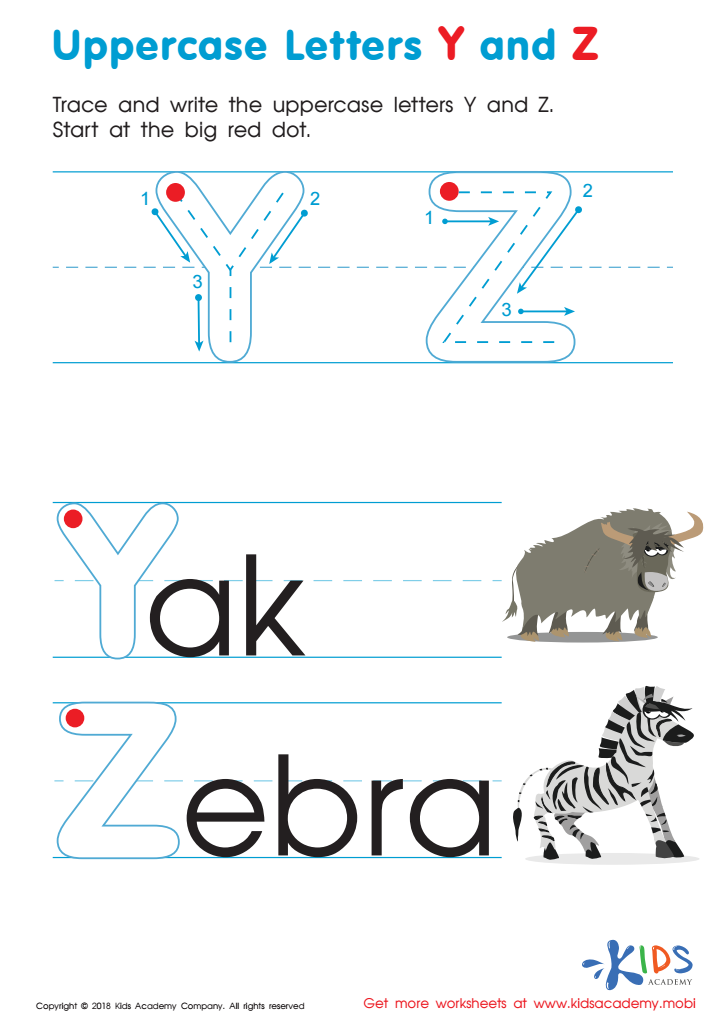

Uppercase Letters Y Z Worksheet
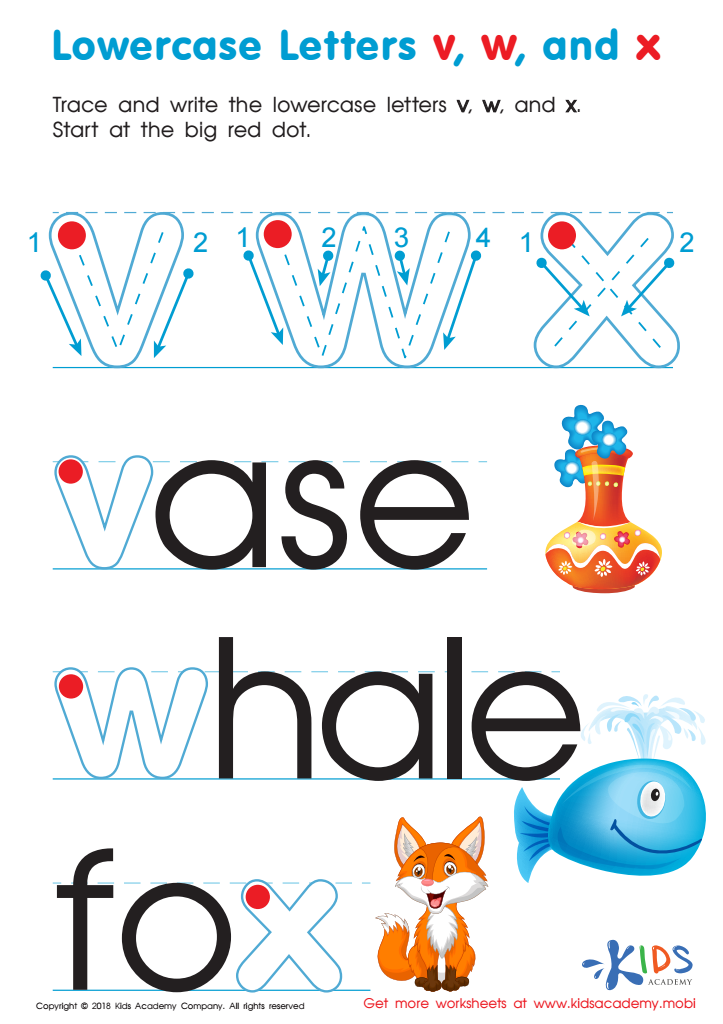

Lowercase Letters v w x Worksheet
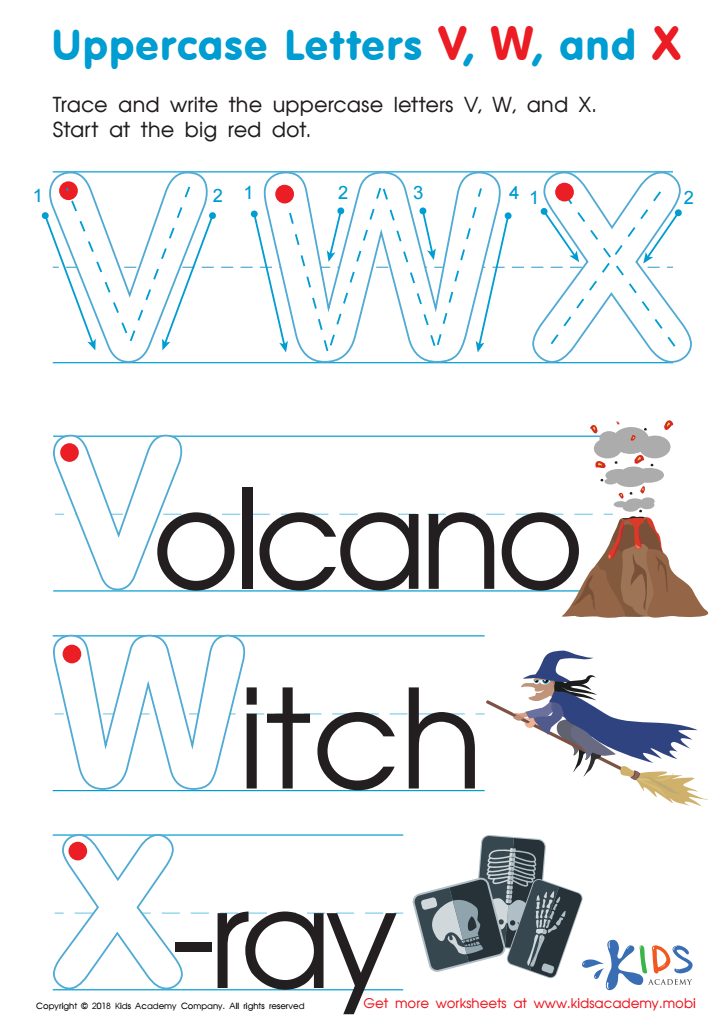

Uppercase Letters V, W, and X Worksheet
Fine motor skills are essential for young children, particularly those in kindergarten, as they encompass the small muscle movements required for tasks like writing, drawing, and manipulating objects. Parents and teachers should prioritize these skills as they form the foundation for effective handwriting, including the proper formation of both uppercase and lowercase letters. Mastery of fine motor skills enhances a child’s ability to perform these tasks with accuracy and confidence.
Improved fine motor skills lead to better hand-eye coordination, necessary in daily activities and academic settings. As children practice writing letters, they learn to control their pencil grip, develop spatial awareness, and understand the structure of letters. Moreover, a solid grasp of letter formation supports literacy development, ensuring they can communicate effectively in writing.
Additionally, fine motor activities boost concentration and perseverance, fostering a sense of accomplishment and self-esteem. Engaging in activities like cutting, coloring, and tracing shapes can make learning fun while encouraging brain development.
In summary, supporting fine motor skill development not only aids in letter writing but lays the groundwork for overall academic success, fostering essential skills for lifelong learning. Teachers and parents play a crucial role in nurturing these abilities through supportive practices and engaging activities.
 Assign to My Students
Assign to My Students







